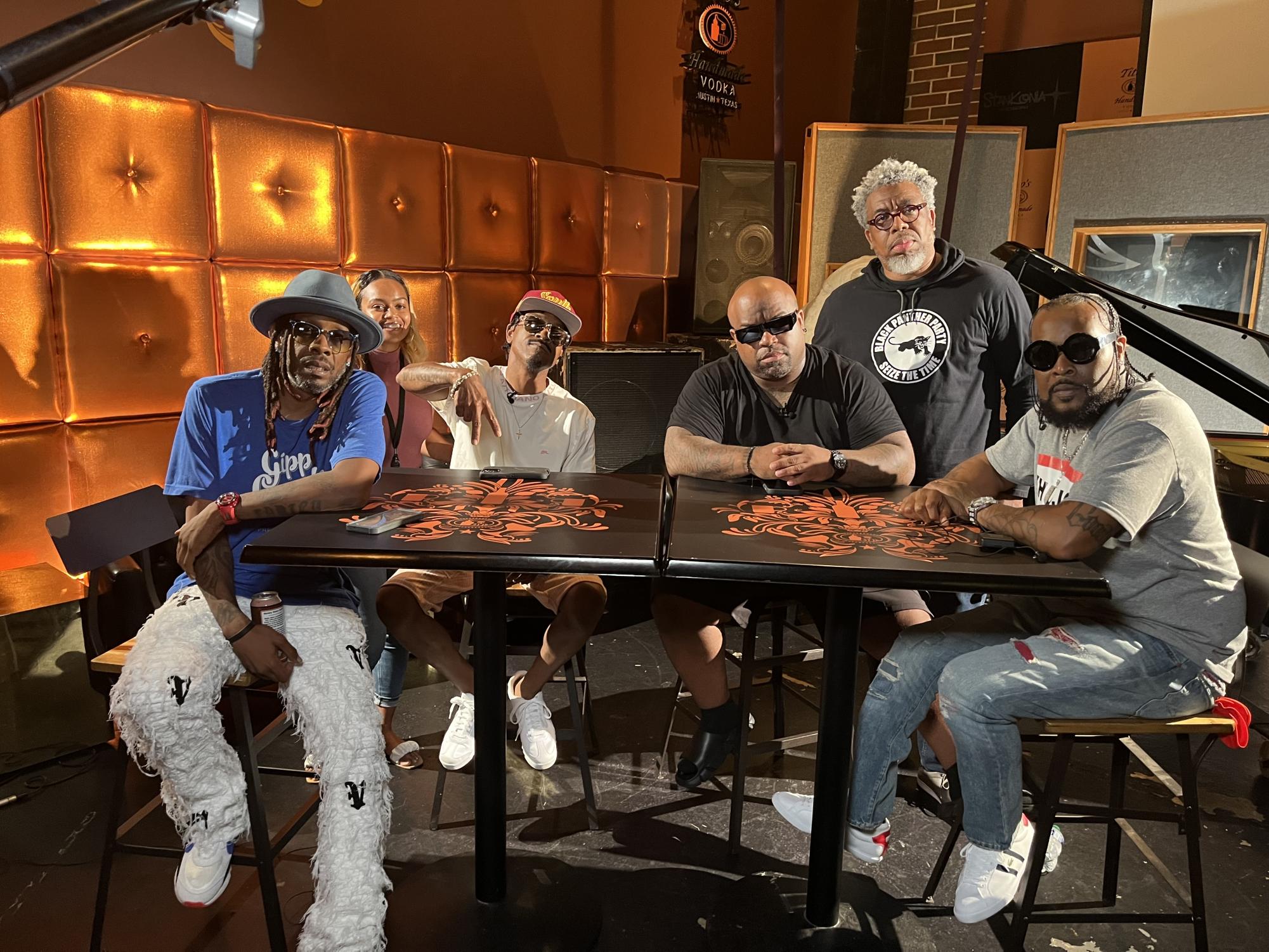
Hip-hop in Atlanta is not simply a music genre, but a force that has shaped the city’s identity. Through music, fashion, arts and architecture, hip-hop has touched every defining aspect of Atlanta culture, transforming it into what it is today.
“A lot has come out of Atlanta and Atlanta is a very strong creative space, especially for young people, so I think that the expressions of hip-hop and all of its forms have flourished in Atlanta,” Atlanta’s director of cultural affairs Camille Love said.
Love has noticed the presence of hip-hop inspired art across Atlanta’s landscape, including graffiti.
“Graffiti is everywhere in Atlanta, graffiti artists are making a mark on the world,” Love said. “They are embracing and enhancing our environment all the time. It is a form of expression that I think has come out of hip-hop and is one of the pillars of hip-hop.”
Sekou Cooke is the curator of “Close to the Edge: The Birth of Hip-Hop Architecture,” an exhibition showcasing the influence of hip-hop on architecture that was featured in October 2022 at the Museum of Design Atlanta. Cooke said hip-hop architecture is a pivotal aspect of shaping Atlanta hip-hop culture.
“One could argue quite easily that hip-hop is our current dominant culture, so the architecture really needs to reflect who we are and how we live, what our culture is, what society thinks about our culture,” Cooke said. “Everything that we know of our lives as in hip-hop culture, can shape the way that we live in cities can shape the way … that we live in and exist in any part of our built environment. From buildings to train stations, from museums to streetscapes, all of that is all of the realm that hip-hop culture can affect.”
Close to the Edge was held in several major American cities, but saw the most success when it visited Atlanta, Cooke said.
“The show in Atlanta was the biggest show in terms of square footage and size,” Cooke said. “It was also the biggest show in terms of popularity and attendance because Atlanta is now the current epicenter of hip-hop culture. The saying is that hip-hop was born in New York, but now lives in Atlanta.”
Cooke said this unprecedented success stems from Atlanta’s pride and embracing of its hip-hop climate.
“The Atlanta hip-hop community understood [the exhibition] from a different angle,” Cooke said. “They understood it from a hip-hop cultural space and they understood how important that culture is … there’s a lot of talk about all these larger infrastructure projects and the new developments happening in Atlanta, and then being more aware of the influence of hip-hop culture in that space. So, if Atlanta is where Hip-Hop lives, then Atlanta is definitely where hip-hop architecture needs to be really, really visible.”
Cooke said hip-hop architecture can revive and empower marginalized communities within Atlanta.
“Atlanta, just like any other American city, has a history of wiping out different neighborhoods, that in most cases were predominantly black neighborhoods,” Cooke said. “Hip-hop architecture has the power to revisit those histories, make them more visible and more relevant and also allow us to remix the old with the new and take a whole new stance on that. So, this is important for Atlanta; this is important for any American city.”
For the 50th year of hip-hop, Atlanta has taken measures to educate about hip-hop’s significance in the city and its influence on the urban landscape.
“The Mayor’s Office of Cultural Affairs has a citywide festival called elevate,” Love said. “So. this year and in commemoration of 50 years of hip-hop, we dedicated our festival to hip-hop. There were movies; there were murals … we have hip-hop break dancing for kids. We read them stories about hip-hop, and we’d tell them history of hip-hop.”
In recognition that youth may be less familiar with Atlanta hip-hop than older generations, Love said the City of Atlanta hoped the festival events would enable youth to learn about hip-hop in Atlanta.
“We tried to provide a holistic program that covered all aspects of hip-hop,” Love said. “We tried to create programs around it … that would remind and educate a generation that … didn’t understand the impact that Atlanta has had on hip-hop.”
This commitment to celebrate 50 years of hip-hop in Atlanta has been mirrored by Atlanta’s popular music festivals, Love said.
“Music Midtown for multiple years has had to include in its lineup of artists, but among a lot of other kinds of artists,” Love said. “One Music Fest has included hip-hop artists, along with other music types in its festival over the 15 years it’s been in existence. What was eventful about this year is that and having a milestone like 50 years, I think allowed Atlanta to really focus on bringing in the best and the brightest of hip-hop, and I think that’s what happened with music Midtown and with one Music Fest this year.”
This post was originally published on this site be sure to check out more of their content.







